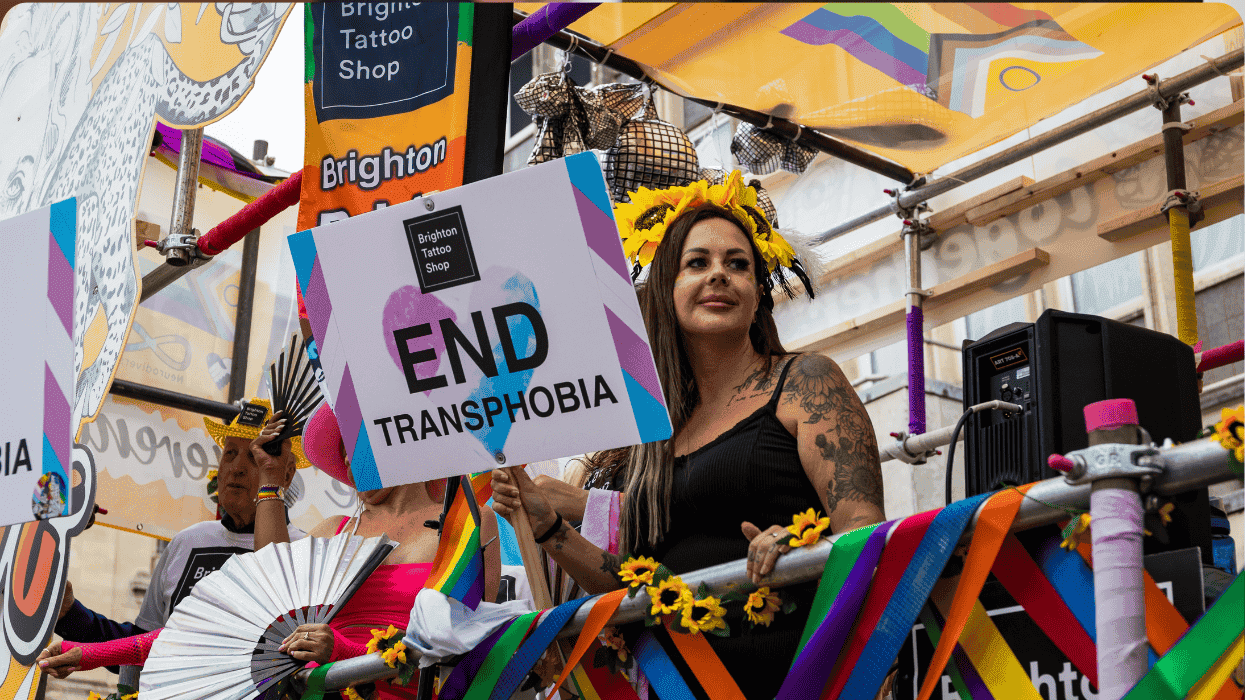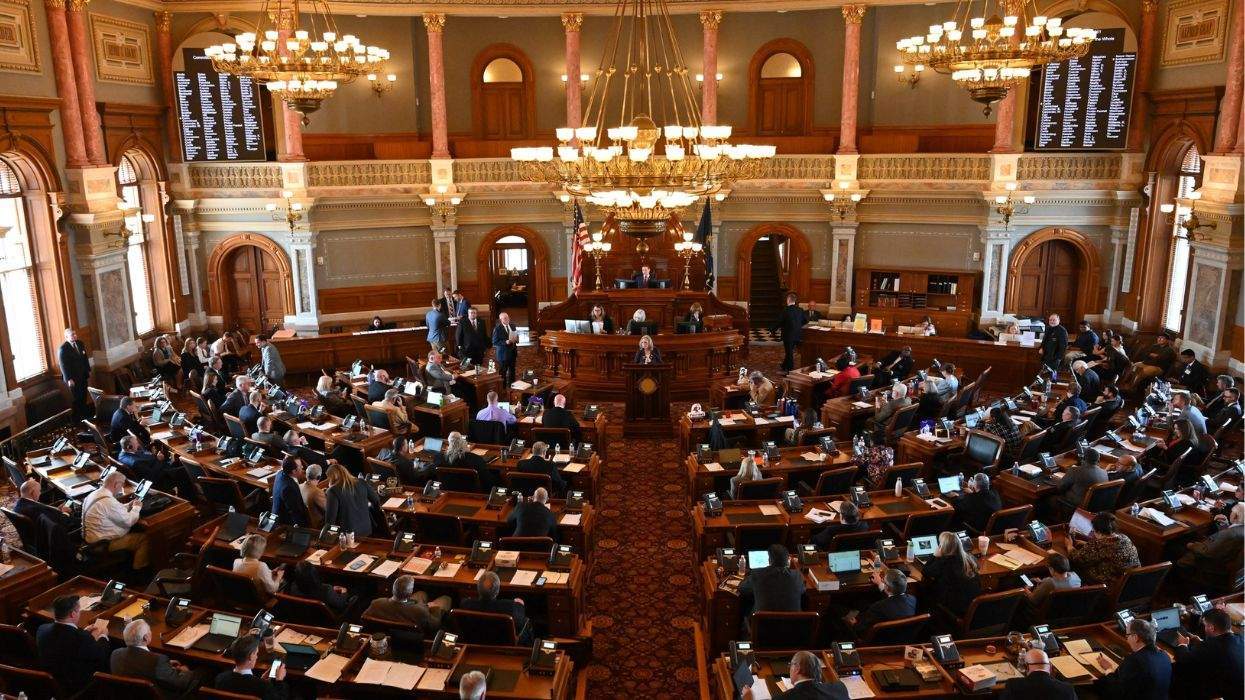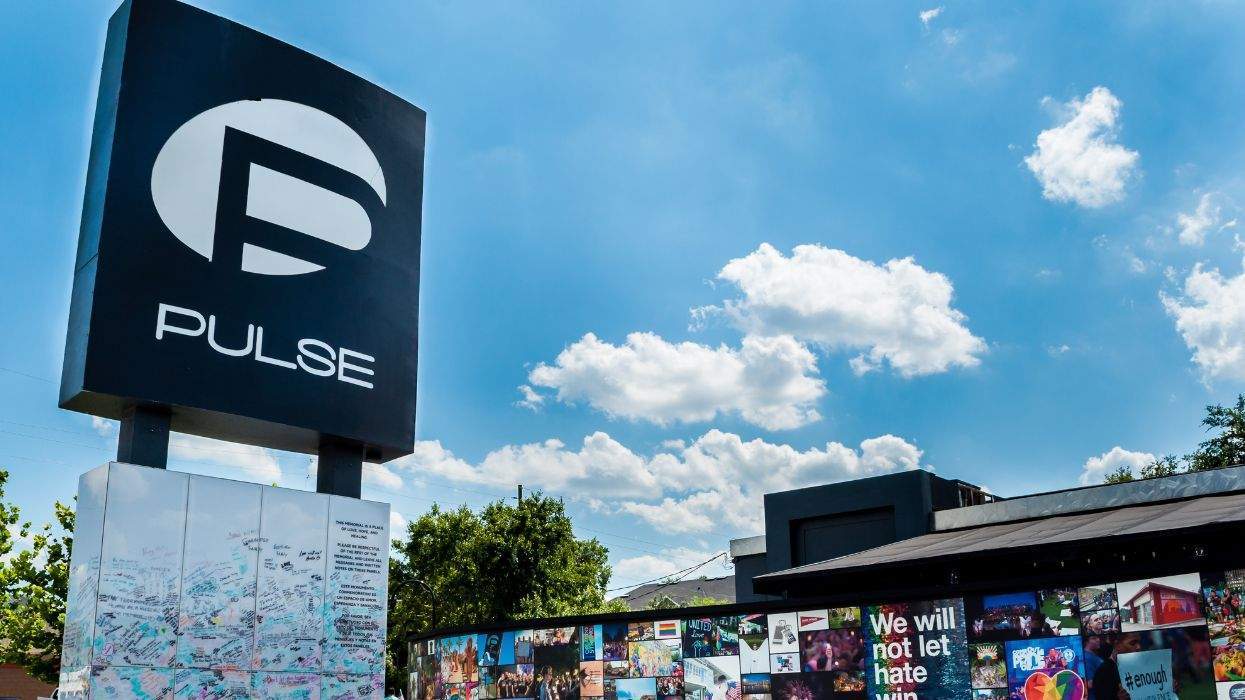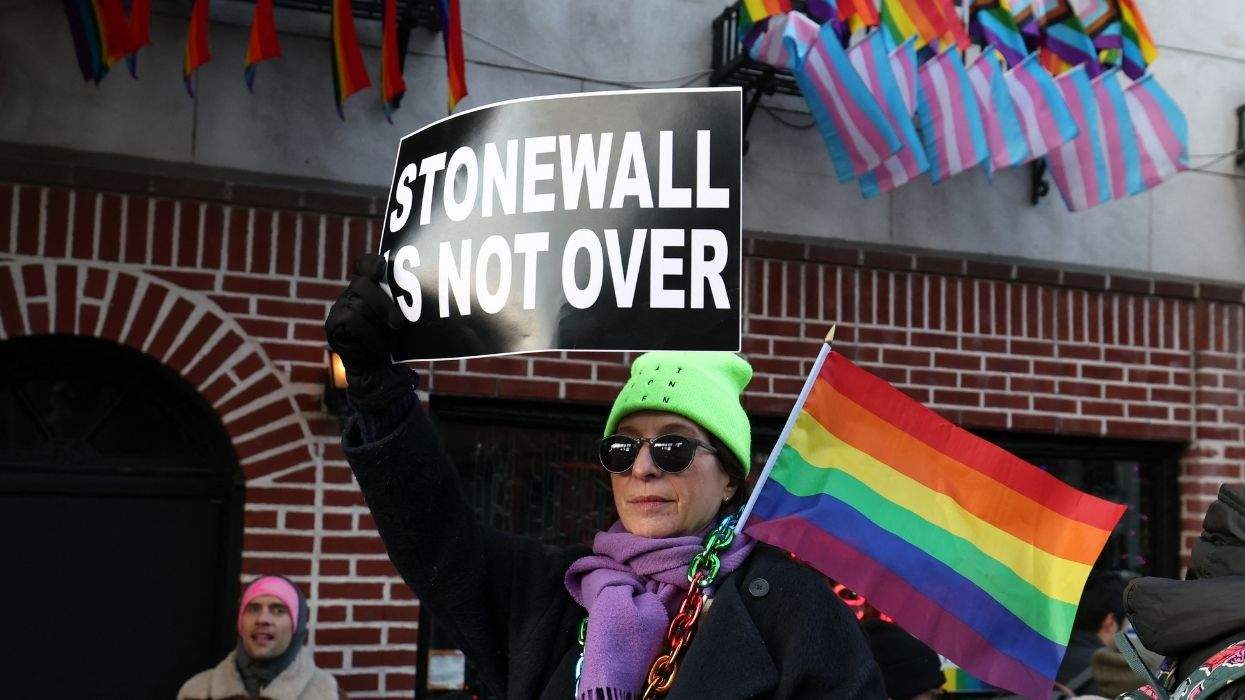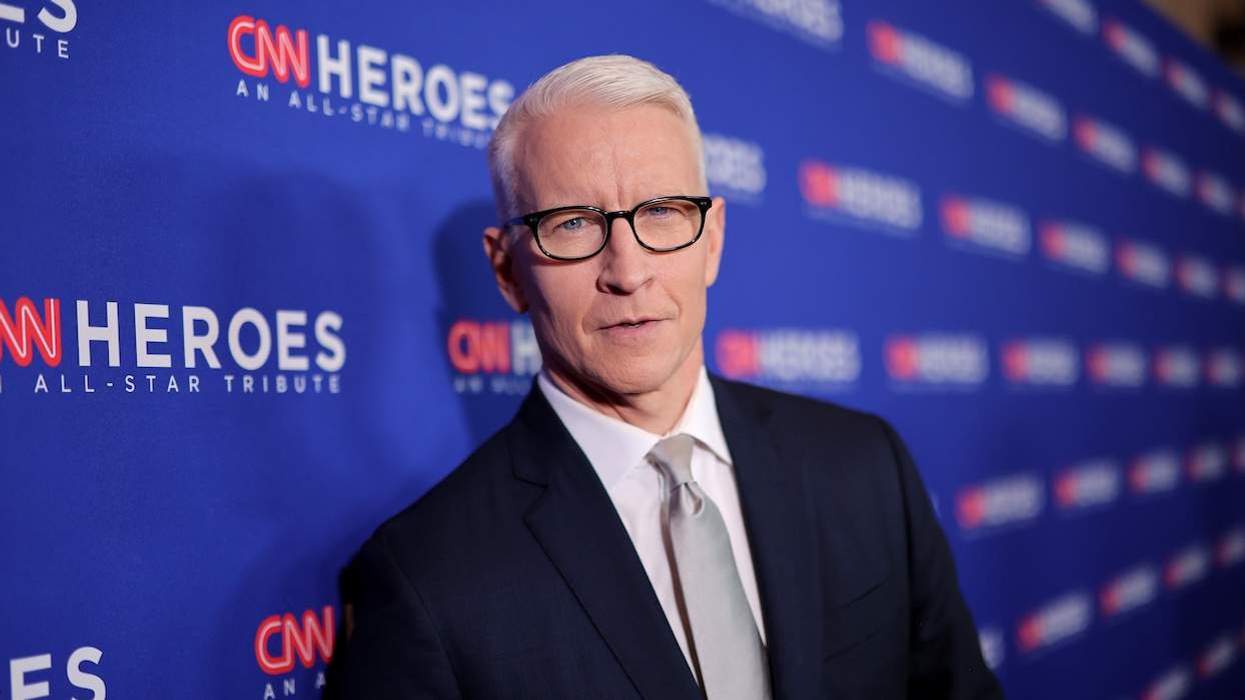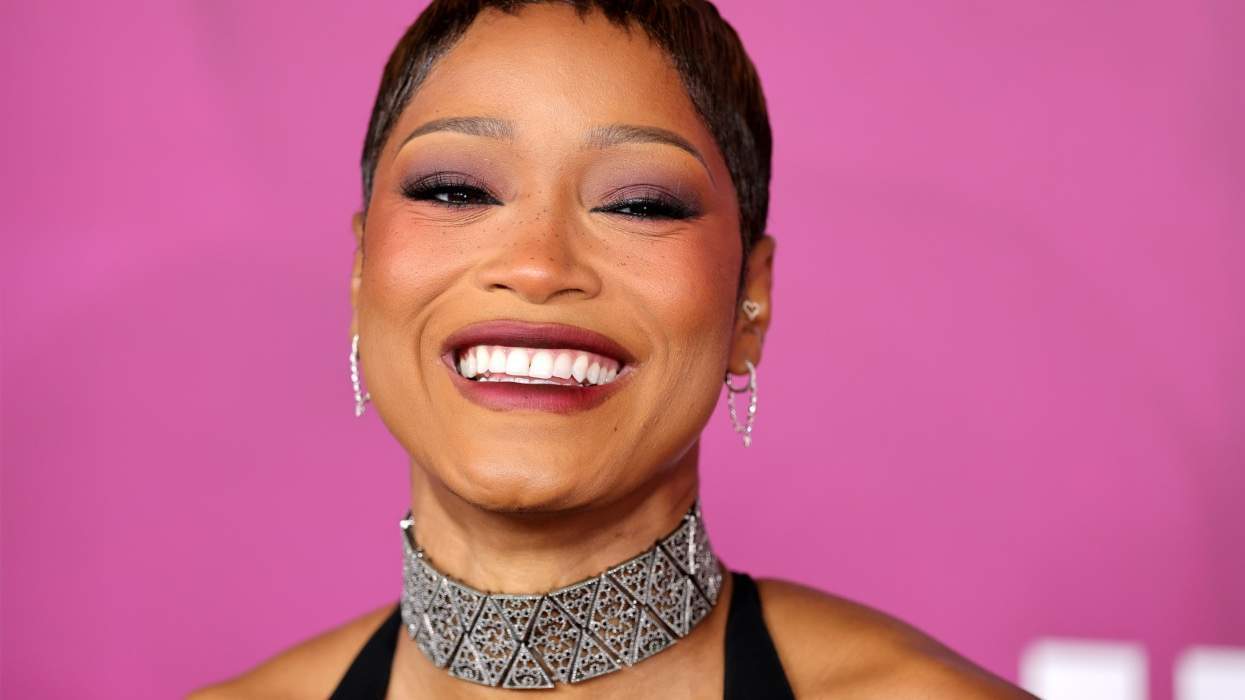On October 26, at least 10 police officers burst onto a New York City subway train car, guns drawn. As seen in a video of the incident posted to Facebook, 19-year-old Adrien Napier waited for them with his hands up before an officer yanked him to the floor. Although the New York Police Department said that officers were responding to "an alert for a male with a gun," no weapon was found. Ultimately, he was charged with a single offense: subway fare evasion.
The incident is another example of the city's increasingly visible effort to combat turnstile jumping. Such enforcement actions disproportionately target people of color; a 2017 study from the Community Service Society showed that Brooklyn fare evasion arrests are concentrated in high-poverty Black neighborhoods. In the first three months of 2019, 70 percent of people who received summons for not paying fares were Black or Latino.
And the comparatively high numbers of LGBTQ people in poverty -- especially youth of color -- means that they too are more likely to be affected.
There are more LGBTQ people living in New York than any other city in the United States. For Pride this year, the Metropolitan Transit Authority rolled out rainbow MetroCards and a Pride logo on some subway cars.
But as Out editor in chief Phillip Picardi wrote on Twitter, "Not sure how either [New York Gov. Andrew Cuomo] or [New York City Mayor Bill de Blasio] can call themselves LGBTQ+ allies when it's moves like these that perpetuate the criminalization of poverty, which will disproportionately impact the most vulnerable of our community. They are both impostors."
As officials have upped police presence on transit in a bid to cut down on riders not paying for tickets, advocates fear the consequences. In New York City, getting caught not paying for the $2.75 fare can net a $100 fine or possibly a night in jail.
"We know that when our clients avoid paying their fare, they are doing it because they have crucial appointments to attend and no other way to get there," Kate Barnhart, the executive director of the LGBTQ youth homelessness group New Alternatives, told The Advocate. "These appointments include job interviews, appointments for benefits such as food stamps, medical and mental health appointments, and housing interviews."
According to a joint report from the Movement Advancement Project and the Center for American Progress, "Among the many population groups that pay an especially high price for the failures of the U.S. criminal justice system are LGBT people, including LGBT people of color and low-income LGBT people."
The report notes that "broken-windows policing," based on the largely baseless theory that zeroing in on minor crimes will "trickle up" to decrease major ones, frequently targets LGBTQ people.
About one in five LGBTQ people experience poverty, compared to 16 percent of straight people. The rates are especially high for trans people and cisgender bisexual women, and higher for LGBTQ people of color than for white people. Discrimination can make it hard for LGBTQ people to keep a job, find an apartment, or accesss affordable health care -- all of which can contribute to having fewer financial resources. Young people are especially vulnerable to these factors if they don't have family support.
"People experiencing homelessness, including the estimated 20-40 percent of homeless youth who identify as LGBT, can find themselves caught in a cycle of arrests and jail time as they are ticketed or arrested," the report reads.
In New York, many are fighting back. A number of protests erupted over the weekend, with people marching through the streets of Brooklyn and hopping the turnstiles en masse. The Swipe It Forward campaign encourages New Yorkers to use unlimited MetroCards to swipe people in as they leave -- pointing out that it's legal to do so. Advocates have argued that spending at least $40 million to deploy more police officers into the subway is not the way to address the MTA's frequently cited $215 million in lost fare.
Some elected officials are also moving to address the issue. Gothamist reported that Queens State Sen. Jessica Ramos introduced a bill last month to require subway police officers to wear body cameras.
In January, as reported by City & State, Assemblyman Dan Quart proposed reducing the fine for fare evasion from $100 to the cost of a ticket: $2.75. "My proposal was intended to lessen the burden on poor people and prevent them from being unnecessarily tangled up in the criminal justice system," Quart said. "For most people, interactions with the criminal justice system are extremely destabilizing and can have long-term, adverse effects on a person's housing situation, job, or immigration status."
Barnhart, meanwhile, points to existing programs that are supposed to help New Yorkers who can't afford the fare.
"Instead of issuing people who don't have $2.75 tickets for $100 that they have no way to pay, the city should quickly and fully implement the Fair Fares program, which was designed to provide reduced fare MetroCards to homeless and very low income New Yorkers," she said.

